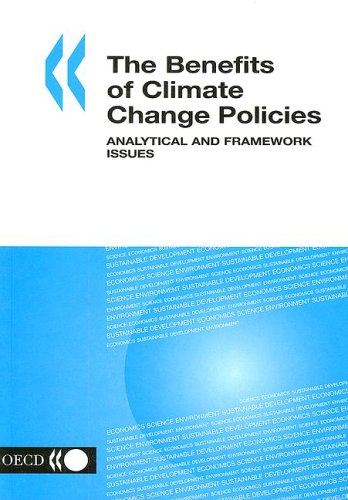

Most ebook files are in PDF format, so you can easily read them using various software such as Foxit Reader or directly on the Google Chrome browser.
Some ebook files are released by publishers in other formats such as .awz, .mobi, .epub, .fb2, etc. You may need to install specific software to read these formats on mobile/PC, such as Calibre.
Please read the tutorial at this link: https://ebookbell.com/faq
We offer FREE conversion to the popular formats you request; however, this may take some time. Therefore, right after payment, please email us, and we will try to provide the service as quickly as possible.
For some exceptional file formats or broken links (if any), please refrain from opening any disputes. Instead, email us first, and we will try to assist within a maximum of 6 hours.
EbookBell Team

4.0
76 reviewsThe Benefits of Climate Change Policies provides a state-of-the-art assessment of the global benefits derived from climate change policies. It includes recent analyses and viewpoints from well-known scientists and policy analysts, including John Callaway (UNEP Risoe Centre), Henry Jacoby (MIT), Sam Hitz and Joel Smith (Stratus Consulting), Roger Jones (CSIRO, Australia), Michele Pittini and Mujaba Rahman (UK government), John Schellnhuber (and other coauthors from Tyndall Centre, UK), Stephen Schneider (Stanford University), and Tom Wigley (NCAR).
The contributors address these important questions: • What is the nature of avoided impact benefits from policies that limit global warming and how do these vary by sector or region? • Can these benefits be quantified and monetized reliably? • How do adaptation and mitigation policies interact? • What is the nature of ancillary or nearer-term, local benefits of mitigation policies and how do they compare to other types of benefits? • How does the risk of abrupt climate change affect these benefits? • How might integrated assessment models help us to evaluate climate policy cost and benefit trade-offs? • Are there new ways to work with risk-based approaches to look at mitigation policy alternatives?
The book also points the way to a more comprehensive approach for shedding light on the important topic of future mitigation policy benefits.